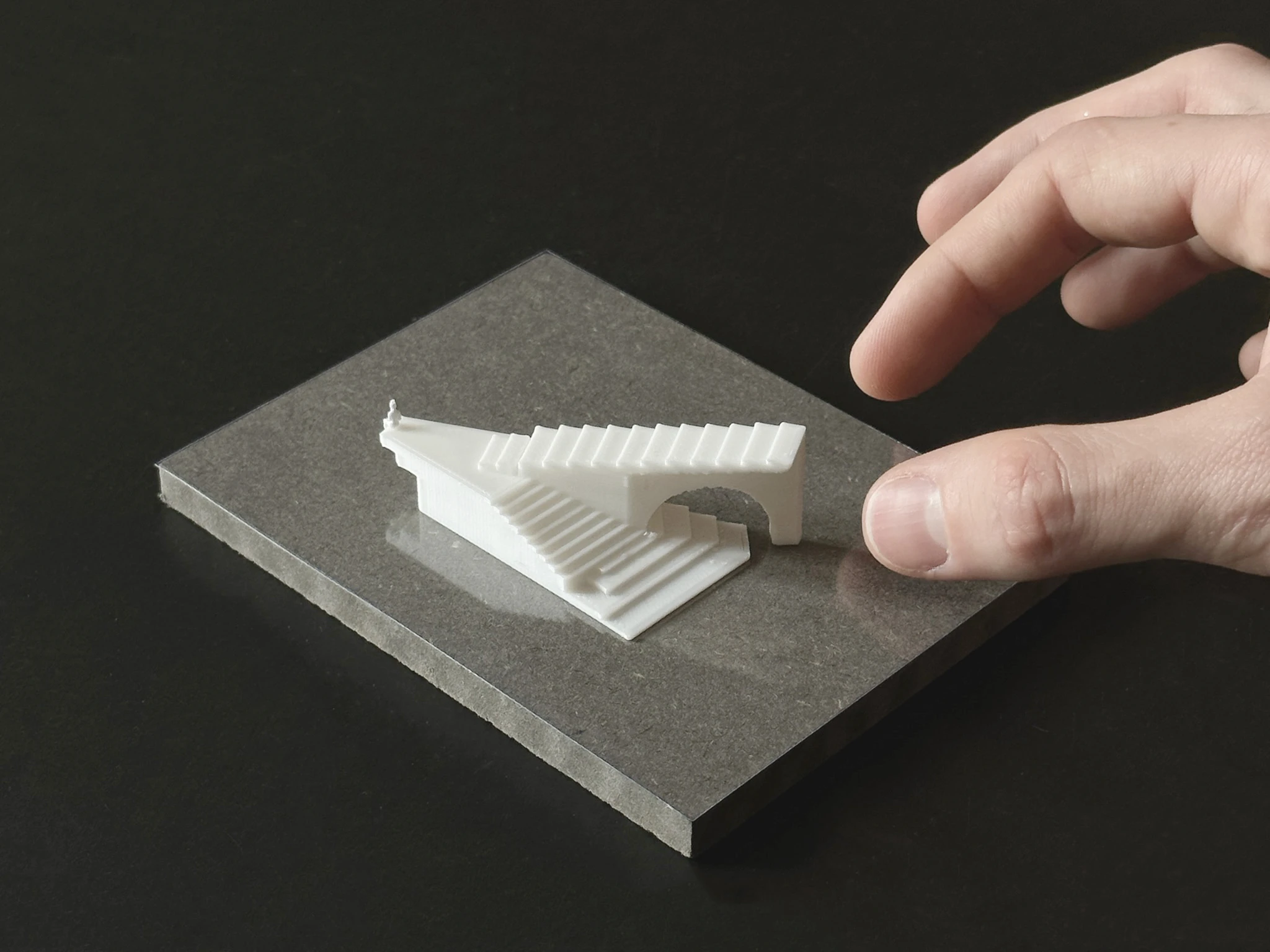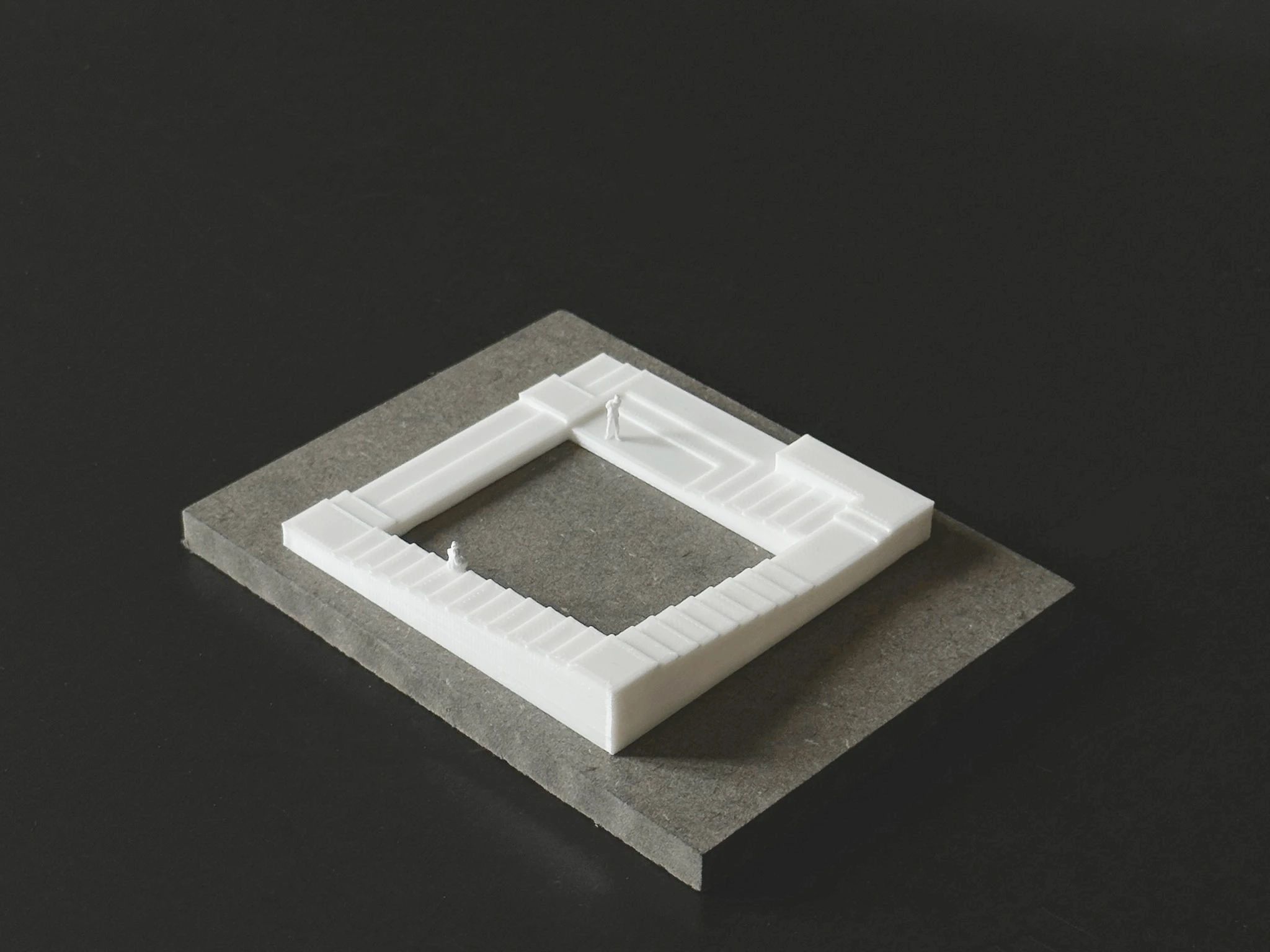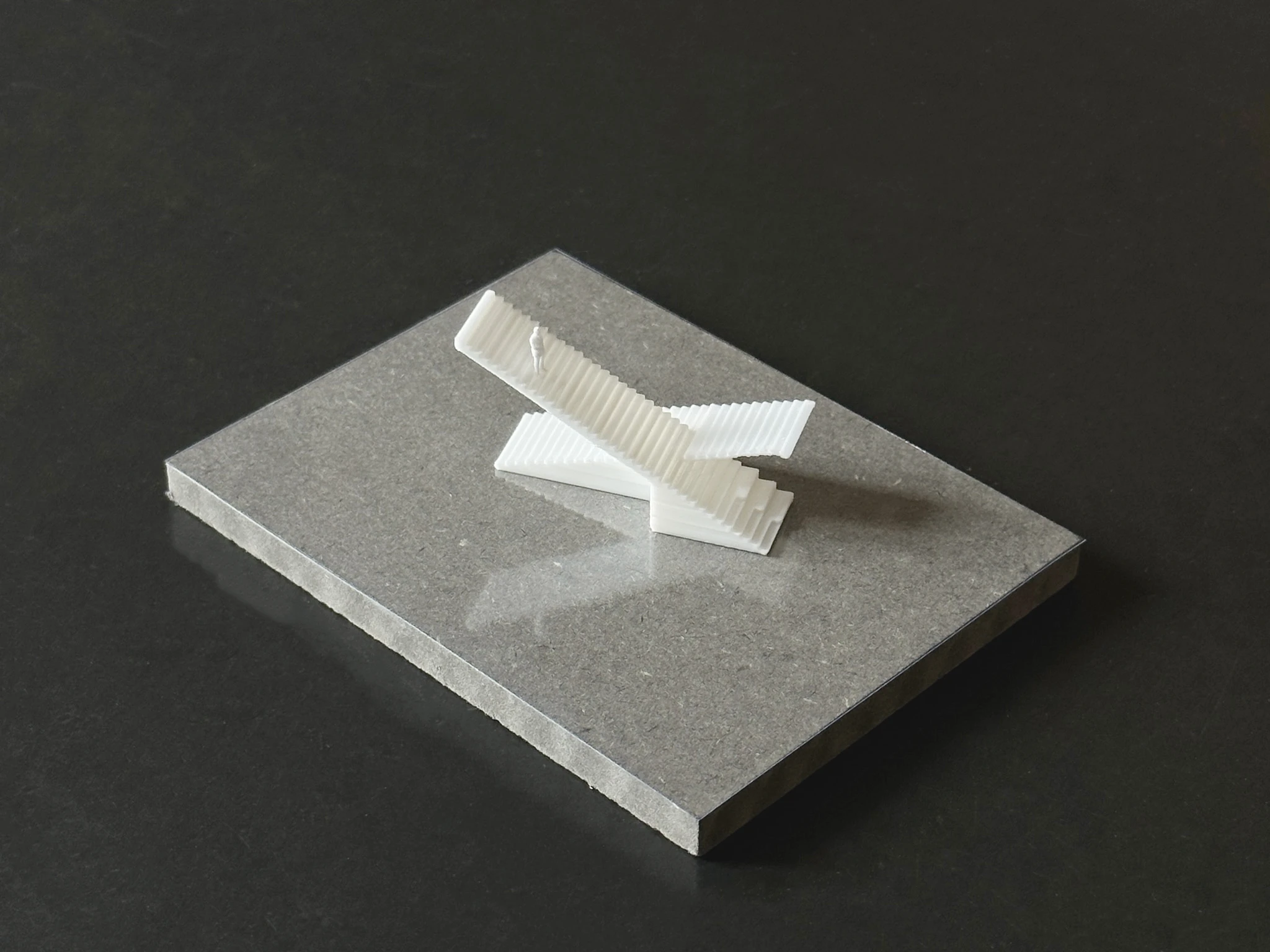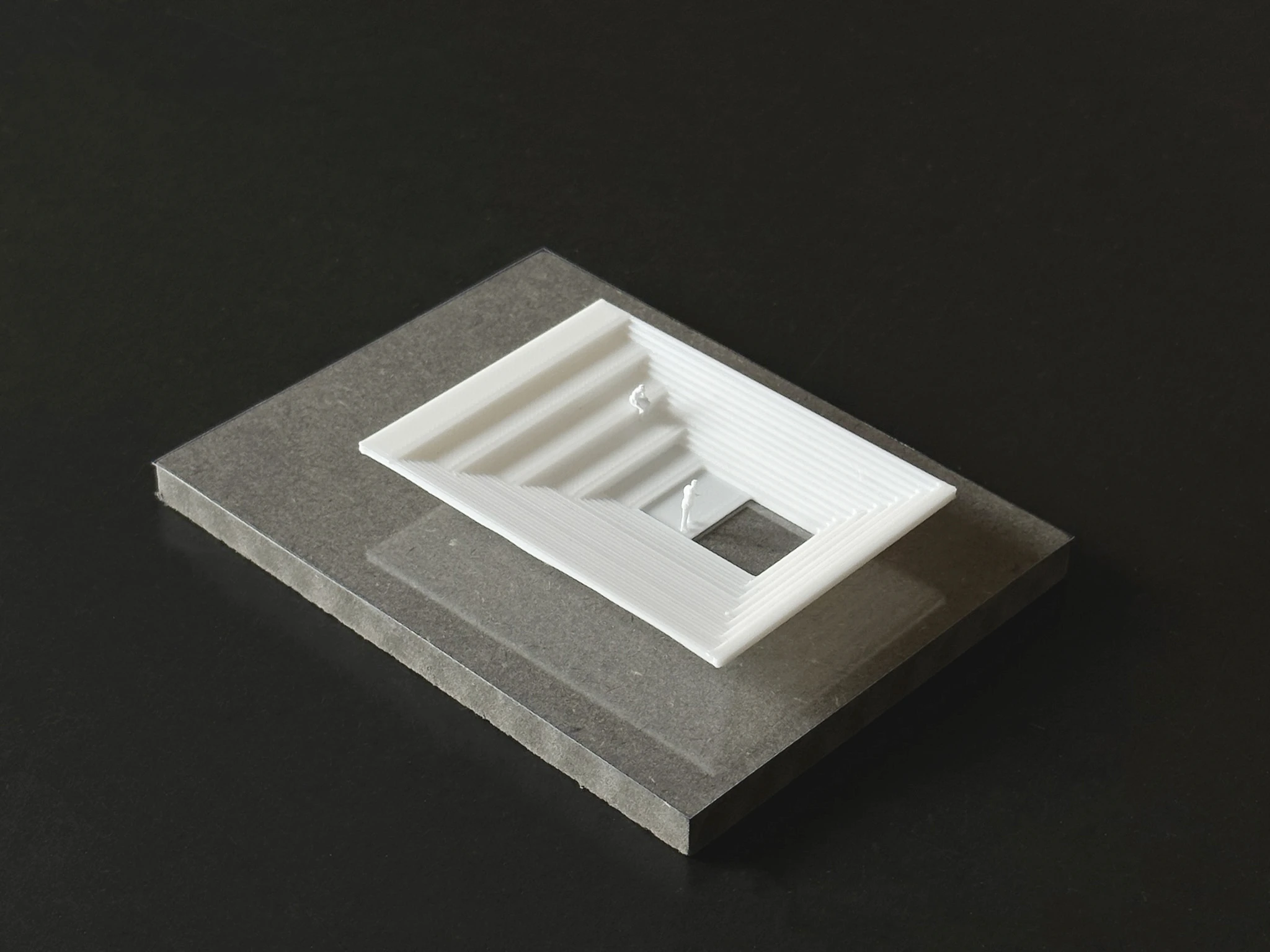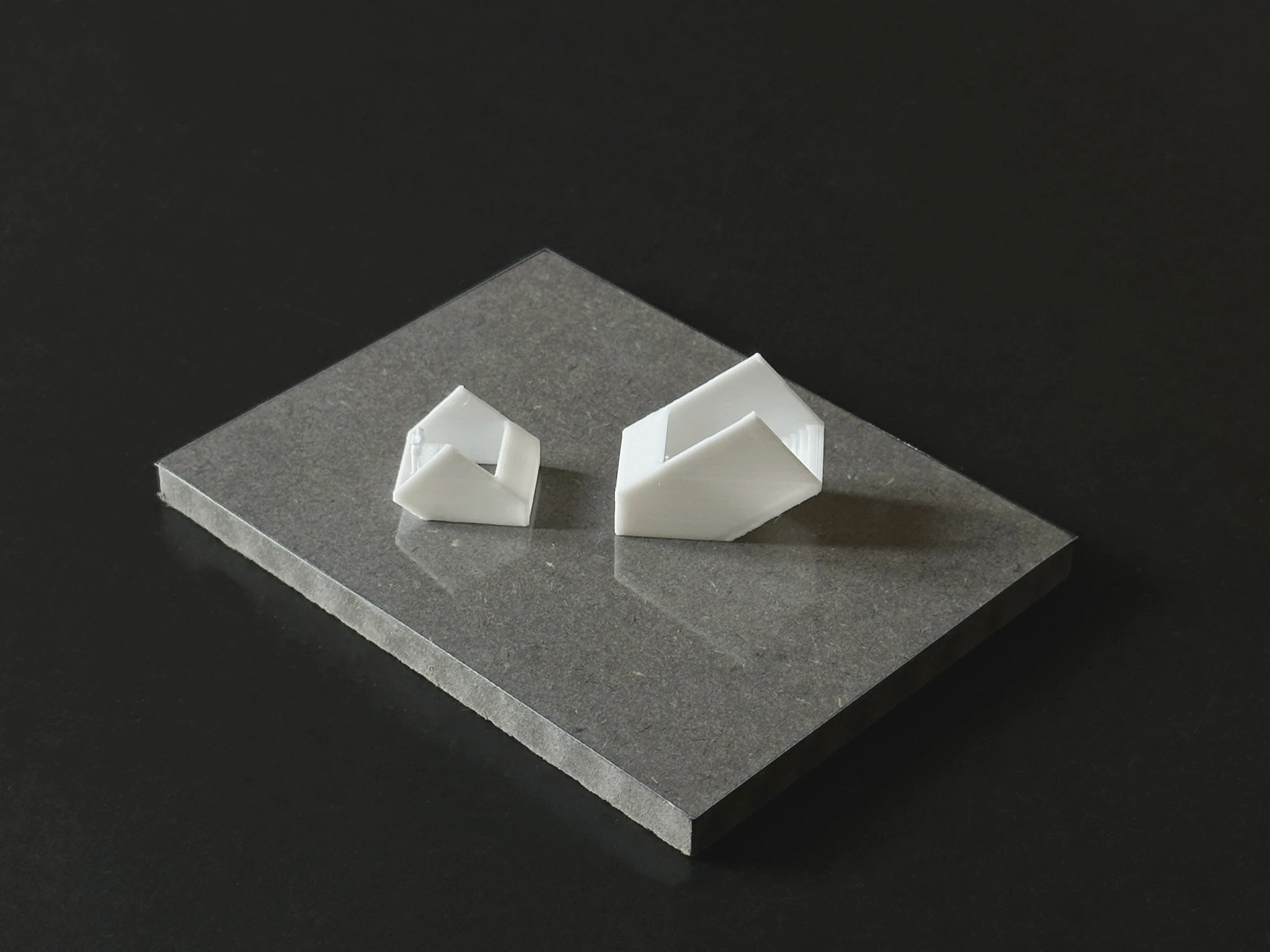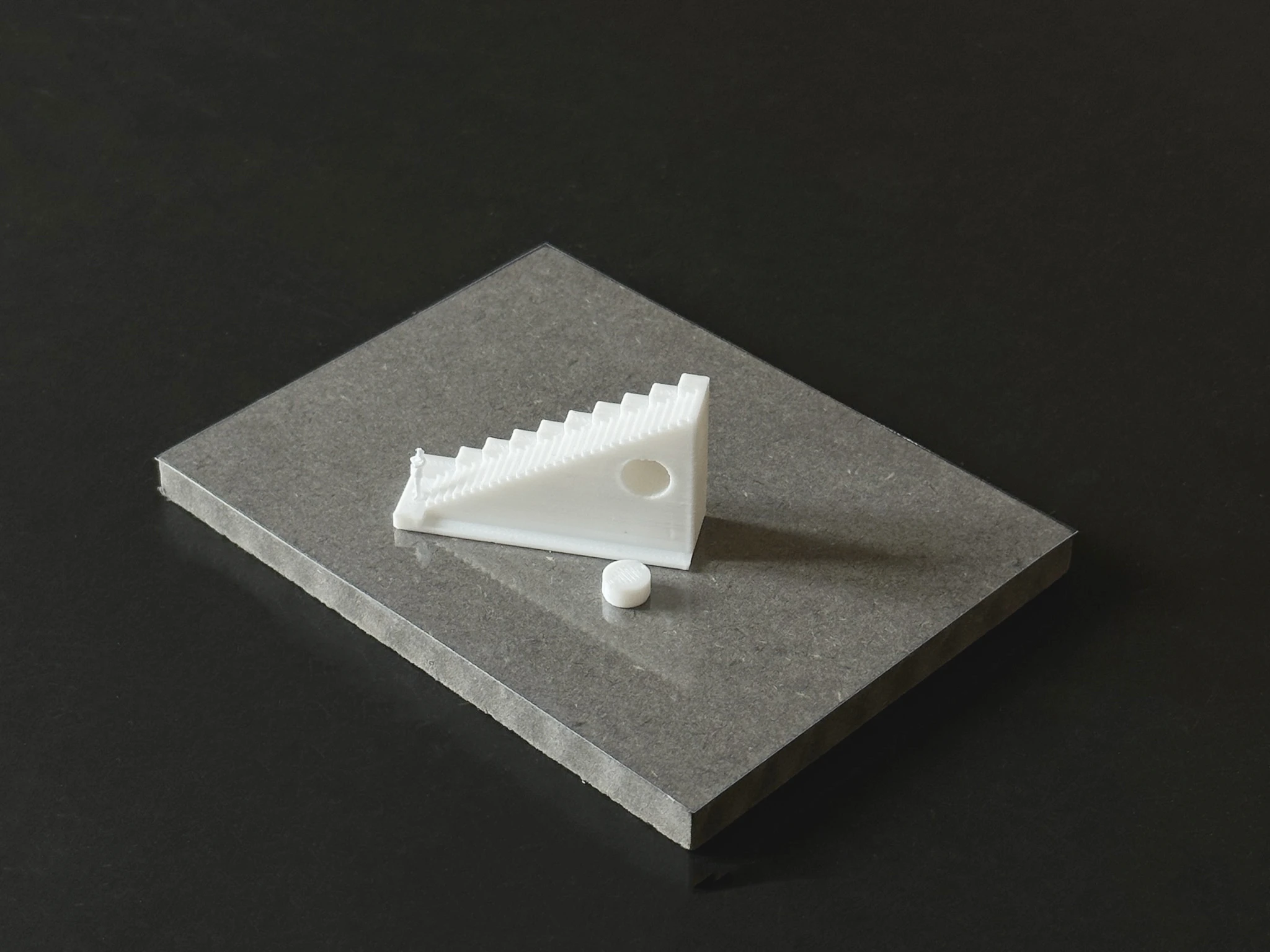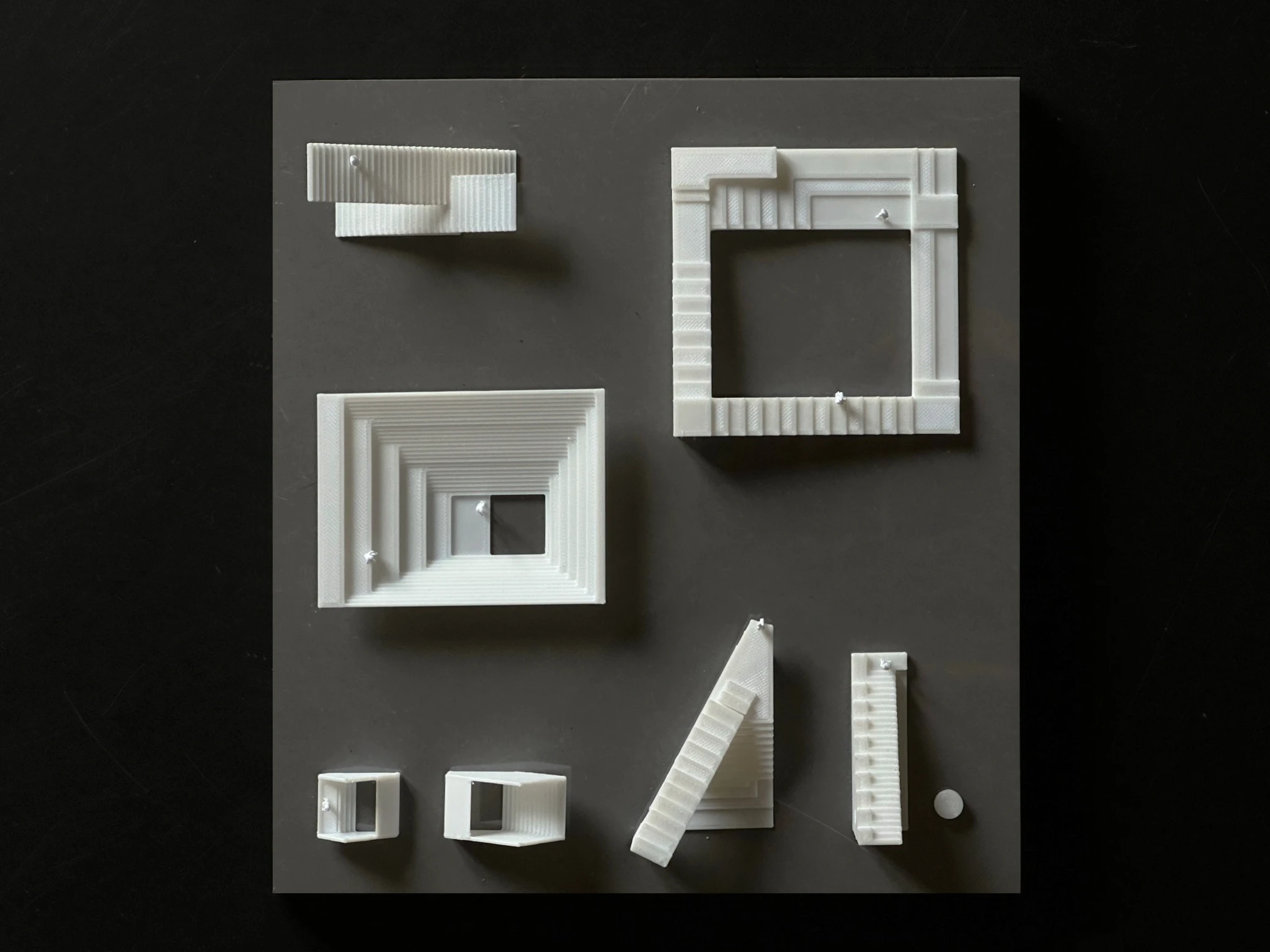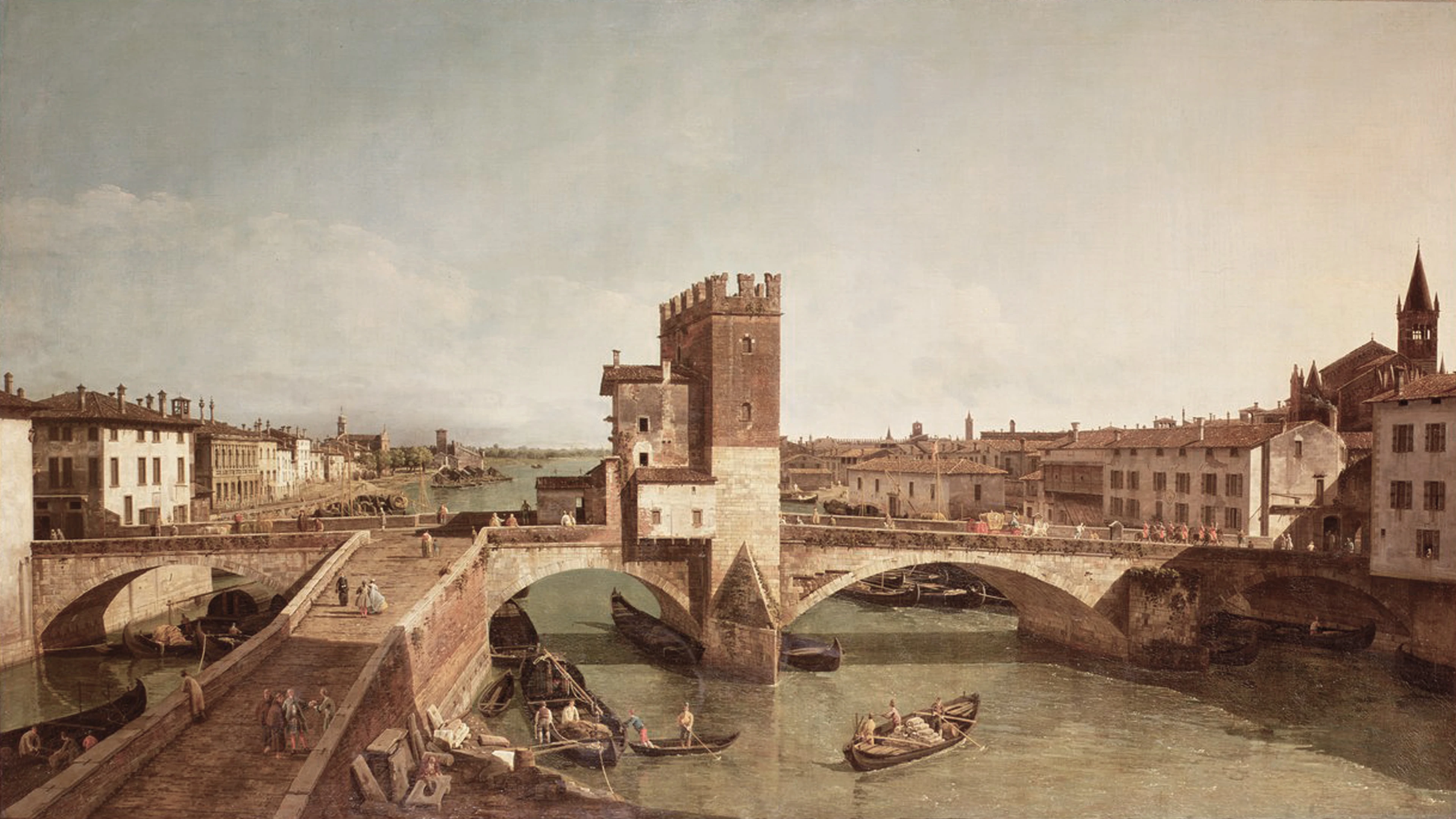
The Adige River has always been one of the most important resources for the life and economy of Verona. In modern times, the river is viewed as a natural element that is no longer essential to city life, and it is sometimes considered dangerous due to its catastrophic potential. However, envisioning the Adige as an exploitable resource encourages us to think of the riverbed and its banks as an extension of the city’s public space. The archetype of the staircase emerges as the most immediate solution to address the objectives of this research. Considering a series of structures that allow people to approach the water in various ways presents an opportunity to reactivate social practices and explore new forms of reappropriation of collective space, creating connections between inhabitants and the river while encouraging urban events and activities. These structures are designed for various uses, encouraging new types of relationships along the riverbank and adapting to different water levels.
Immagine di copertina: Ponte delle Navi in un dipinto di Bernardo Bellotto
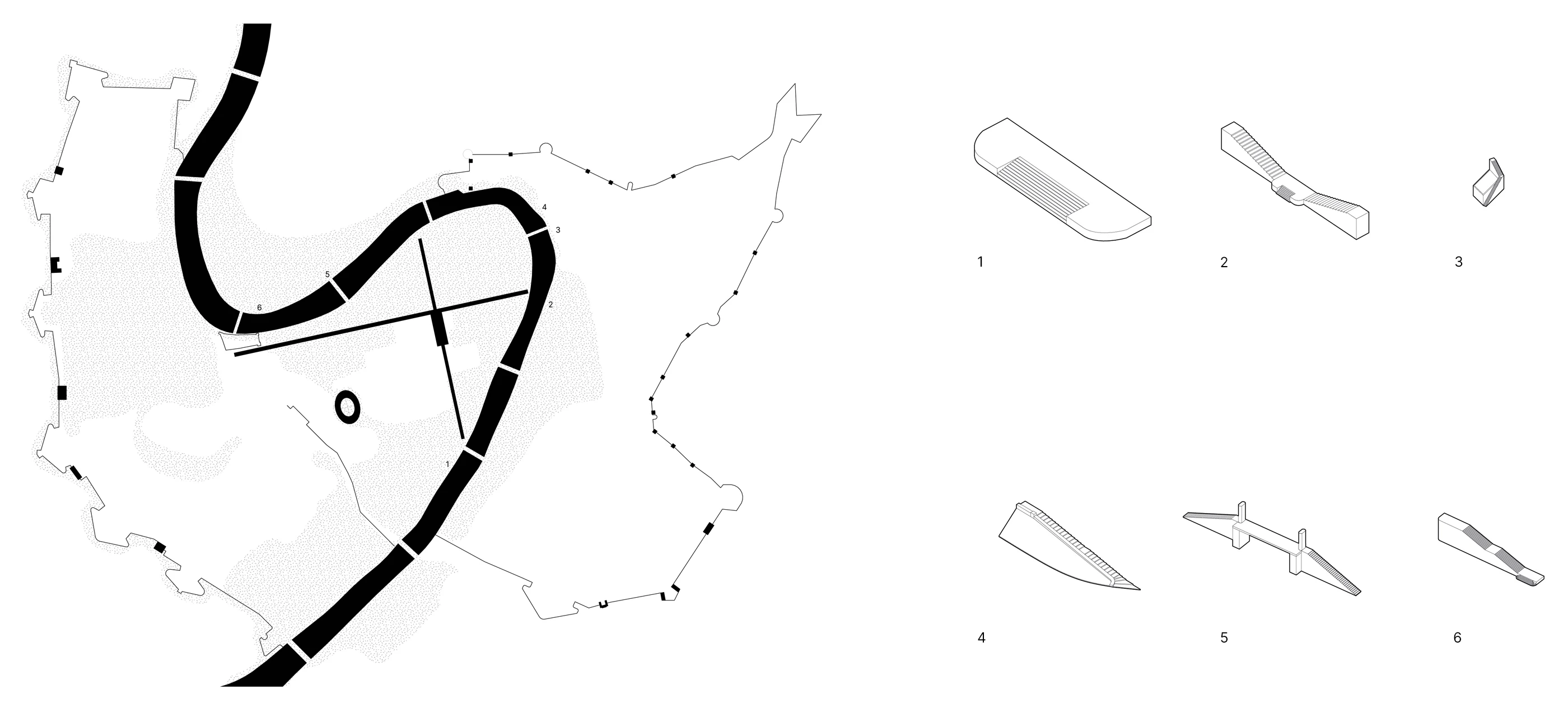
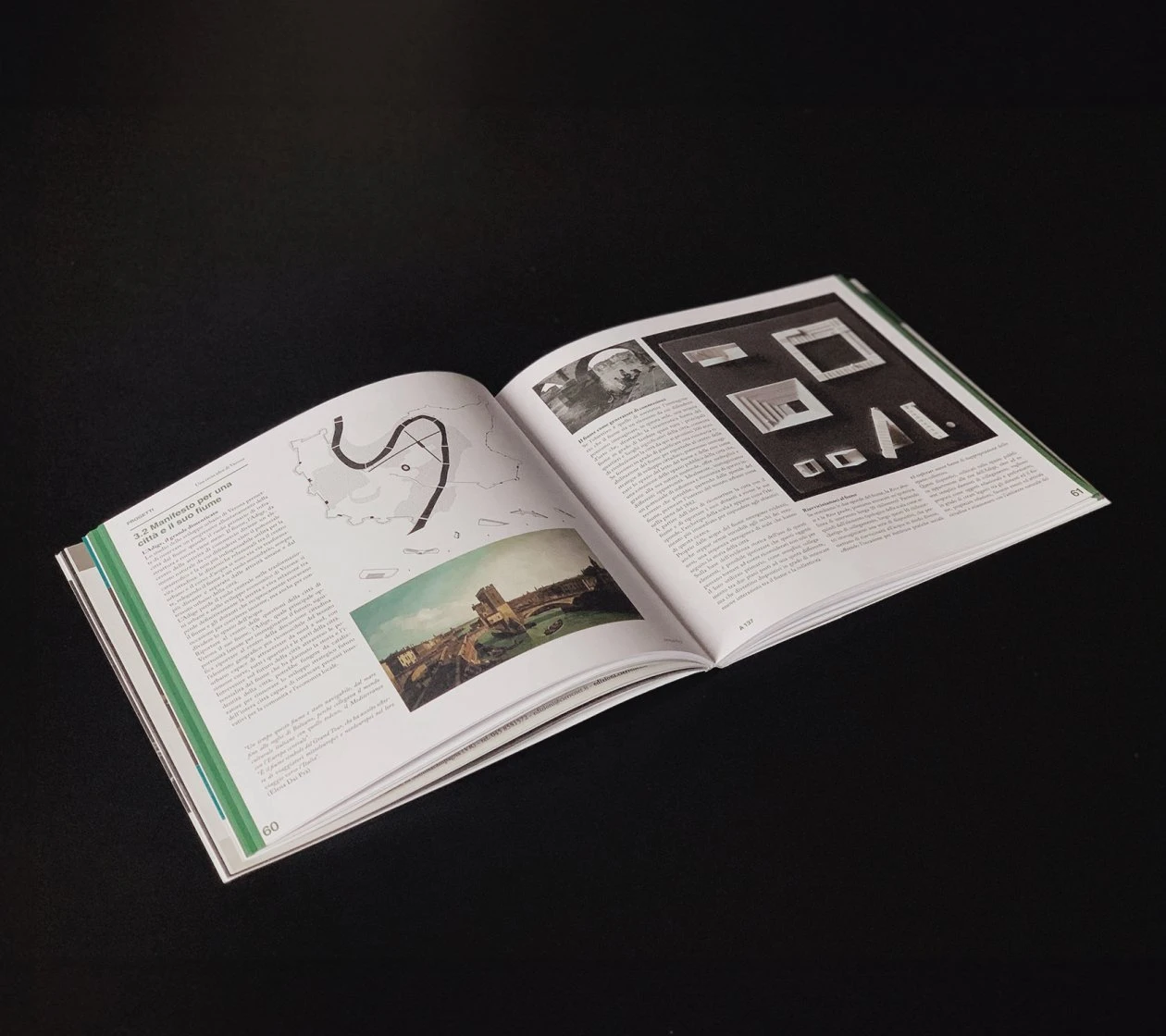
The river was once used and exploited for different activities through the use of stairs that allowed people to go down the riverbank.
"Once this river was navigable, from the sea to the threshold of Bolzano, because it connected the cultural world of Italy with that of Germany, the Mediterranean with Central Europe". (Elena Dai Prà)
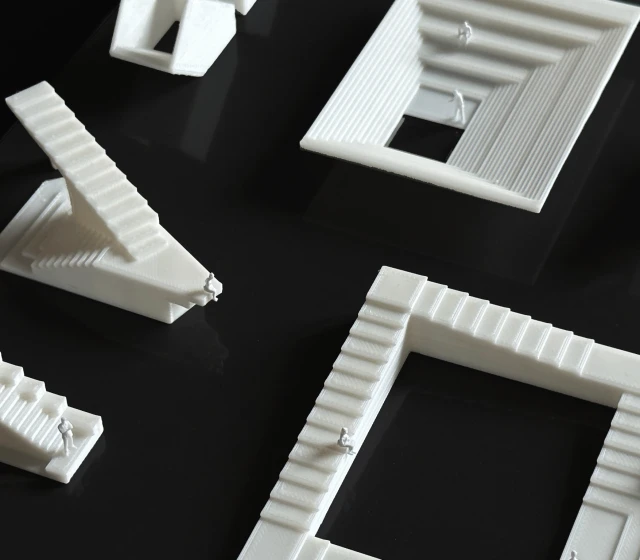
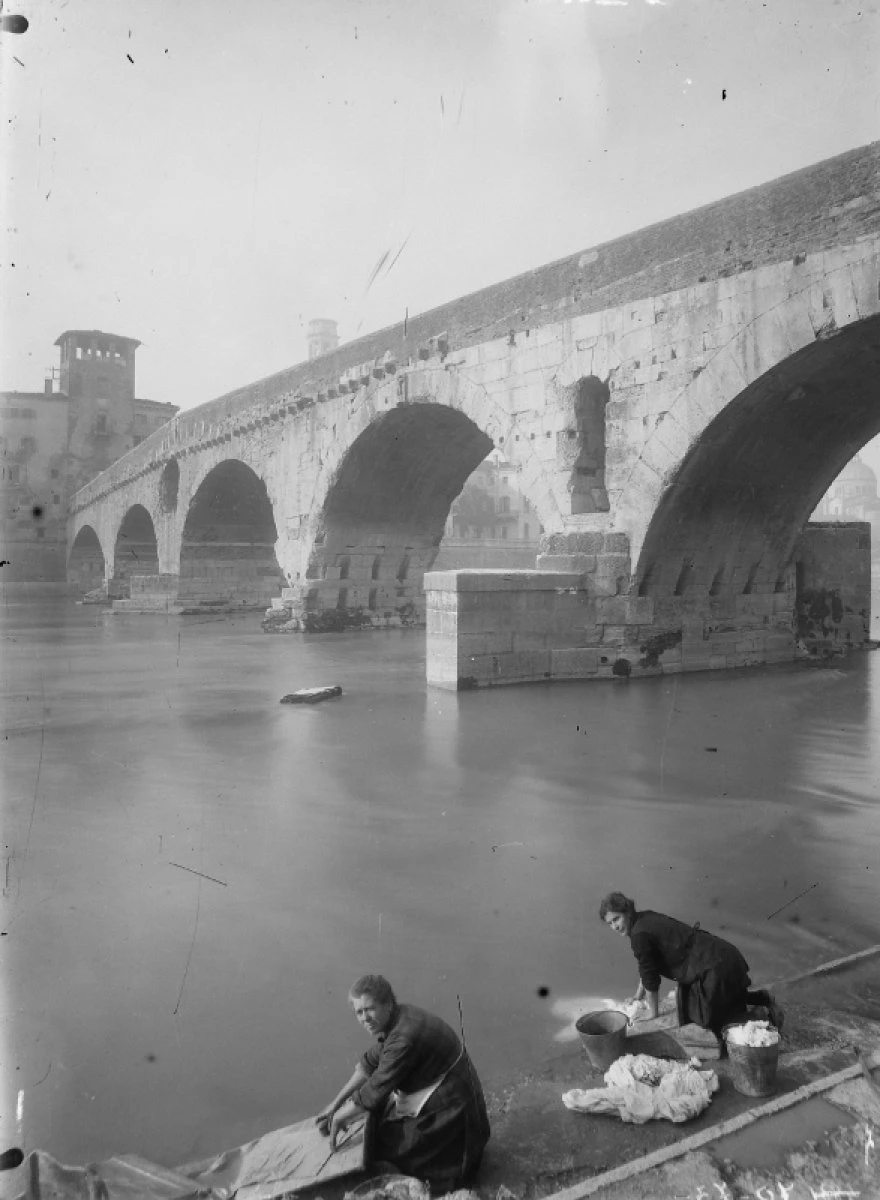
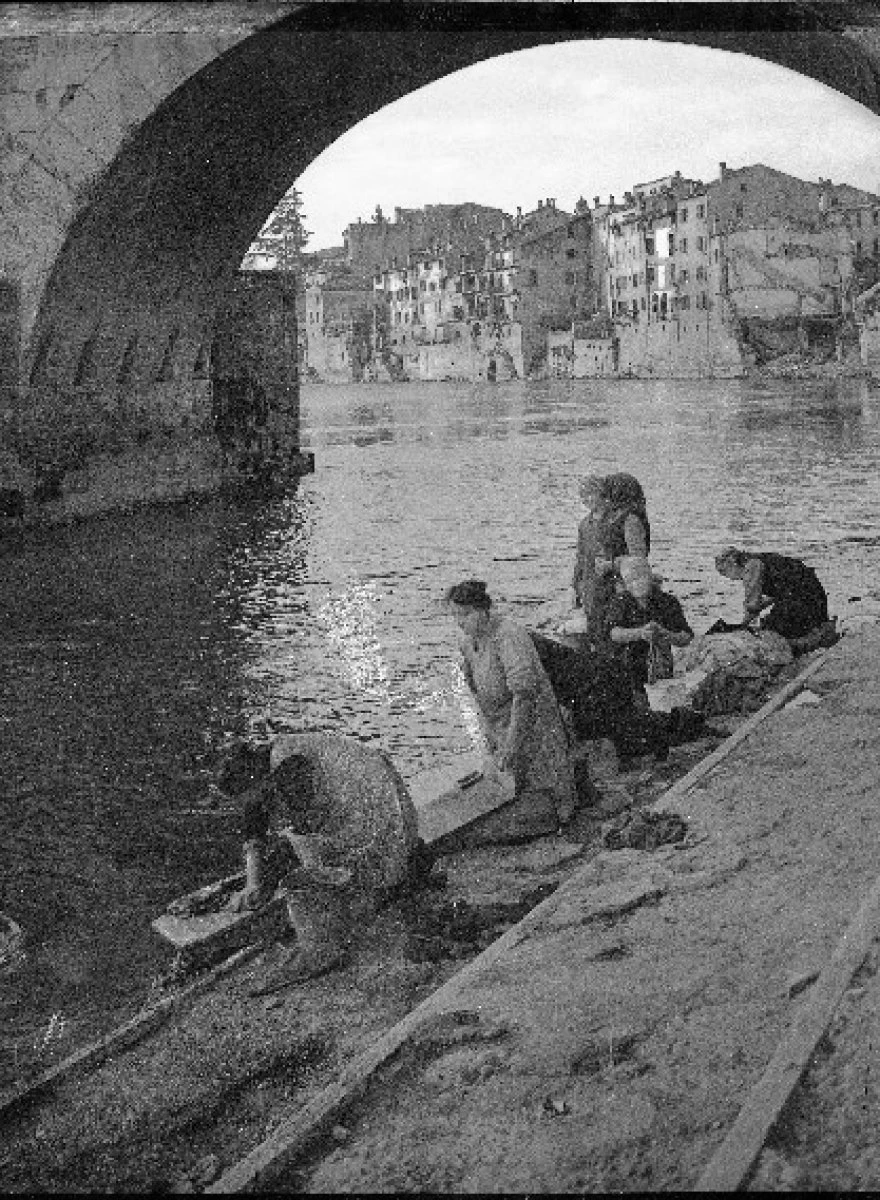
Pictures of Ponte Pietra before demolition, ante1934-1936. Archivio Fotografico SABAP-vr


